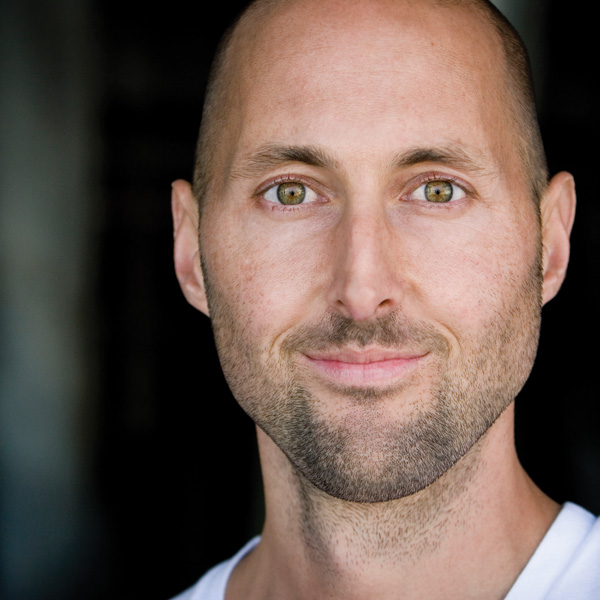Byron Katie is fond of saying that she doesn’t like to suffer, so she doesn’t argue with reality. “I realized that it’s insane to oppose it,” she says. “When I argue with reality, I lose — but only 100 percent of the time.”
The question remains, of course: How can you get to a point where you actually love what is, especially when the reality is that your lover left you or you got fired or you found out you have cancer? Katie has an answer, and she calls it “The Work.”
The Work is a process that involves writing down troubling thoughts and then asking four questions:
- Is it true?
- Can I absolutely know it is true?
- How do I react when I think that thought?
- Who would I be without the thought? (Find the worksheets and guidelines at www.thework.com; see below for a demonstration.)
The whole exercise is designed to reveal how our deepest beliefs are often based in misunderstanding. According to Katie, beliefs like “My boss shouldn’t have fired me” or “My son should stop failing at math” can’t be proven. They are inherently debatable and unknowable.
And rather than drive ourselves crazy trying to verify our perceptions, she suggests doing the opposite — setting yourself free by questioning the belief that reality should be different. “Every thought, every person, every apparent problem,” Katie says, “is here for the sake of your freedom.”
Whose Business Are You In?
One of Katie’s truly Big Ideas is simple: Mind your own business. She stresses the fact that there are three kinds of business: “mine, yours, and God’s.” Suffering happens when we get out of our own business and into someone else’s, including God’s.
Katie’s God seems fairly nondenominational; she also likes to say, “For me, reality is God. Because it rules.” People’s understanding of God differs, and you don’t have to agree with Katie’s definition to benefit from her suggestion to stay out of business that isn’t yours. The humbling idea that there’s something bigger than us — it could be a divine being or the laws of physics — will always remind you that some stuff is out of your hands.
Let’s say I’m stressing about the fact that my partner hasn’t done the dishes. In fact, she’s never done the dishes. Guess whose business it is what my partner does or doesn’t do? That’s right — her business. If I want the dishes done, that’s my business, and I can take care of it by making my way over to the sink. Or by asking her to do them, without the angry tone that implies she should have done them already. Believing she should do something she didn’t do is guaranteed misery. Katie would say it’s arguing with reality.
What if an earthquake levels my house? I can despair over that indisputable fact, or I can beat myself up for living on a fault line, but earthquakes are ultimately God’s business. The moment my house is leveled and I find out I’m OK and my family’s OK, my business involves finding someplace for us to sleep that night. Katie would say that believing there shouldn’t have been an earthquake is like believing you know better than God. Things get a lot simpler when I know what’s my business and what isn’t.
Doing the Work
Katie’s biggest Big Idea is The Work itself. It can apply to every perceived problem, from a hangnail to a hurricane. And the more willing you are to expose your most unenlightened beliefs to light, the more relief and freedom you’ll find.
The first step is called “judge your neighbor.” (Or the weather. Or whatever is outside of you that you think should change.) Write down every last petty complaint you have about the situation. Don’t hold back or say what you think an evolved person would say; the point is to get to the belief that’s keeping you stuck and uncomfortable. Something like “Bob is a complete jerk” or “My father shouldn’t have died.”
Then take one belief at a time, and pose these questions:
- Is it true?
- Can I absolutely know it is true?
- How do I react when I think that thought?
- Who would I be without the thought?
And then turn it around.
Let’s start with the statement “Bob is a complete jerk.” If I ask myself the first question, “Is it true?” my first response might be “Yes! He didn’t do what he said he was going to do.” But if I’m honest, I have to admit he’s not a complete jerk — sometimes he can be cool, and I kind of like the way he talks about his kids.
If you get stuck on “Is it true?” the second question will likely nail you. “Can I absolutely know that it’s true?” Chances are, you can’t. Even if you don’t like Bob at all, you can’t be positive he is a complete jerk. There’s no objective Book of Jerks you can consult on this apparent fact.
From here, you ask yourself, “How do I react when I think that thought?”
Well, when I think Bob is a complete jerk, I get angry. I’m tense. I’m bitter. I treat him like a jerk and I’m not at all pleasant to be around.
So, “Who would I be without the thought?”
Without the thought that Bob is a jerk, I’d be free to see his good qualities. I’d feel lighter and happier and relaxed. Clearly, I’d be better off without this thought.
Finally, you “turn the thought around.” Turning around involves taking what you said and reversing it; it’s a great tool for tracking down projections. In this case, the turnarounds could be “I am a complete jerk” (true enough when I’m thinking nasty thoughts about Bob), or “Bob is not a complete jerk.”
Indeed, like I said, there are moments when Bob is actually a perfectly great guy. Both of these turnarounds feel a lot truer than my original statement, and I notice when I’m speaking the truth, I can relax.
Embracing the Truth
“Until you see everything in the world as a friend,” Katie says — this includes fatal diagnoses as well as poor drivers in traffic — “your work is not done.”
True, The Work is not for the faint of heart. It takes courage to face reality without telling a story that things should be different. But this is a strategy for learning to love what you get, whether it’s what you wanted or what you thought you really didn’t want. Ultimately, it means living in a state of love — a lot more of the time.
Big Ideas
Discover more practical wisdom from thought leaders by exploring our Big Ideas department.
More About the Author of Loving What Is
Byron Katie is the founder of “The Work,” a four-question method for ending suffering and finding the truth. She has taught The Work around the world in public workshops, corporate retreats and prisons. Learn more about The Work at www.thework.com.





This Post Has 0 Comments